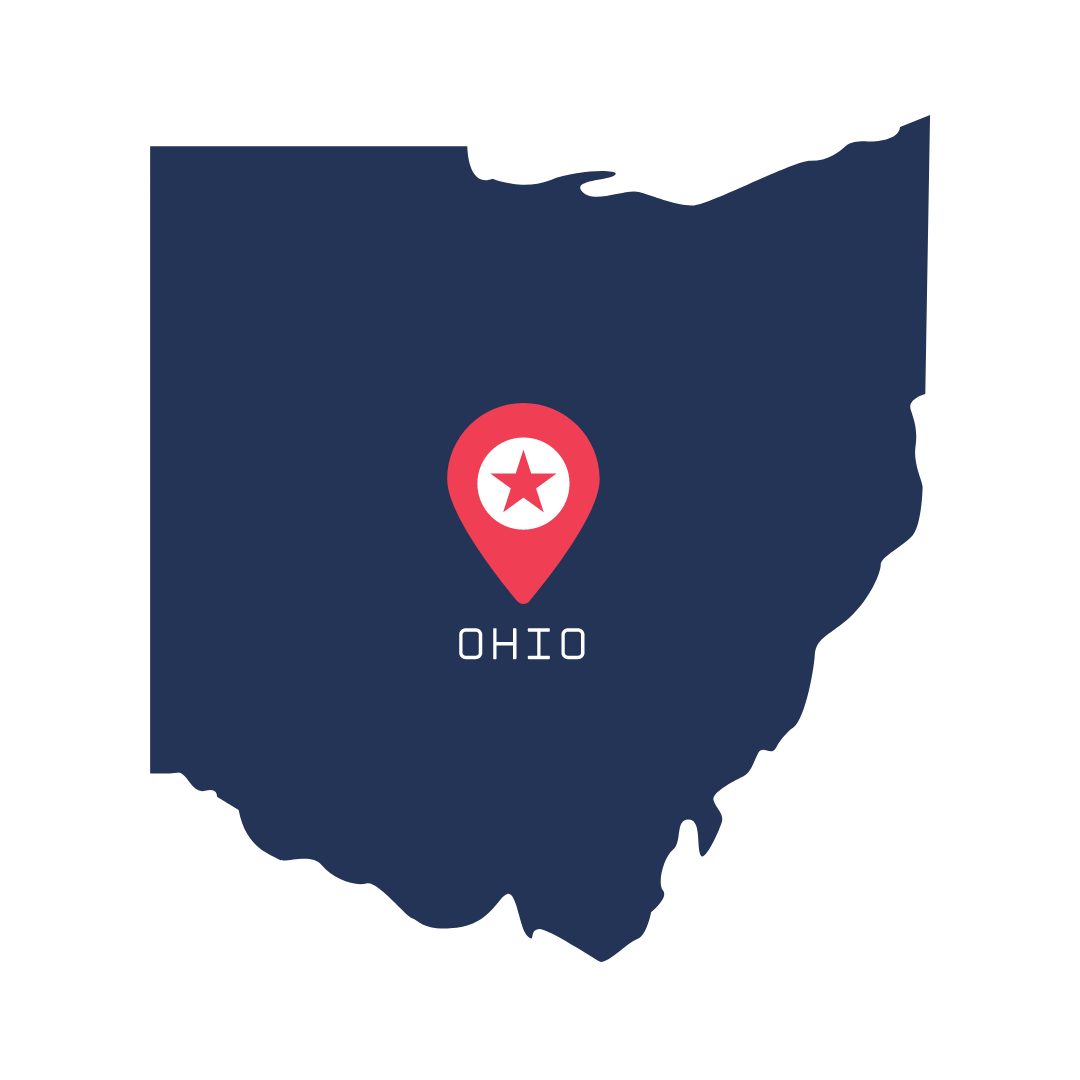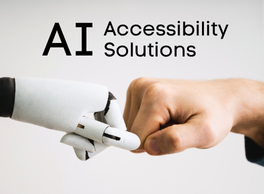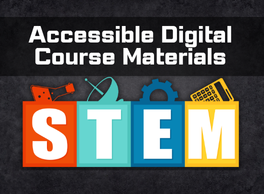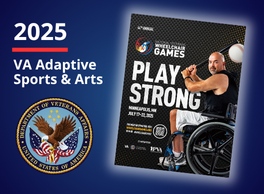

Experiencing the Past: Accessibility in Historic Buildings and Facilities

June is heating up which means we’re going to see a lot more outdoor recreation activities and temporary events like hiking, swimming, farmer’s markets, outdoor concerts, fireworks shows, and much much more!
Here are some basic reminders to help you ensure your activities and events are accessible to people with disabilities this summer:
Program and Activity Access: Whether your entity is a state or local government, business, or nonprofit, you likely have a duty under the ADA to provide equal access to programs or activities and to avoid discriminating against people with disabilities. This can mean making reasonable modifications for a service animal or other power-driven mobility device. It can also mean providing effective communication through auxiliary aids and services like a sign language interpreter or captioning service. If you are offering ticketed events, the ADA has requirements for this as well. Check out the archived webinars in our Arts-N-Rec and ADA Audio series to learn more about meeting your ADA requirements.
Physical Access: The 2010 ADA Standards apply to permanent and temporary structures which means that temporary parking lots, portable toilet units, and temporary event seating needs to comply. The standards also apply to outdoor recreation areas like playgrounds, fishing piers, and swimming pools. Check out our AccessibilityOnline recorded webinars for information on physical access at recreation facilities, assembly areas, restrooms, parking facilities, and exterior routes. The U.S. Access Board has also created a helpful guide on Outdoor Developed Areas which covers beaches, trails, camping facilities, and other exterior spaces that are not included in the scope of the ADA standards.
Learn more about your ADA requirements with the help of this Planning Guide for Making Temporary Events Accessible to People With Disabilities.
Also, be sure to register for our July 9th Ask an ADA Professional Webinar from 2:00 - 3:00 pm (ET) where experts from the ADA National Network will be answering audience questions about Accessible Temporary Events.

Supreme Court Rules For and Against Plaintiffs with Disabilities
June featured two important Supreme Court rulings in cases involving people with disabilities and the ADA. The first ruling states that people with disabilities are not required to meet a more stringent standard of proof when it comes to discrimination cases. The second ruling determined retirees with disabilities cannot challenge an employer under the ADA after they have retired. Check out the Supreme Court ruling on ADA standards of proof and the ruling on challenging employers after retirement.

Accessible Technology Updates: Apple and TikTok
At a time when state and local governments are working hard to comply with new Title II requirements for web content and mobile apps, it is exciting to see third-party companies like Apple and TikTok making accessibility improvements as well. Check out Apple’s Accessibility Nutrition Labels, Magnifiers for Mac, and Braille Access as well as TikTok’s addition of Alt-text for photos.

Negative Interactions with Health Care Providers More Common Amongst People with Disabilities
According to a Rutgers Health study, people with disabilities have more difficulty accessing health care and more negative interactions with health care providers than people without disabilities. The study examined satisfaction ratings, timeliness of care and patient-provider interactions among U.S. adults to assess the differences in health care experiences for those with and without disabilities. Check out the study for more information on the health care experiences of people with disabilities.

IHDA Board Voices Concern Over Proposed HUD Cuts
On, June 20th, the Illinois Housing Development Authority (IHDA) Board approved a resolution objecting to any decrease in funding for rental assistance in the U.S. Department of Housing and Urban Development (HUD) fiscal year (FY) 2026 budget that would also impact affordable housing development in Illinois and across the nation. In Illinois, nearly 400,000 households receive rental housing assistance from HUD-funded programs such as the Housing Choice Voucher Program, Project-Based Rental Assistance, Section 202 Housing for the Elderly, and Section 811 Housing for Persons with Disabilities.
SIU Helps Aspiring Pilots with Disabilities Take Flight
Southern Illinois University is making strides in aviation accessibility for aspiring pilots with disabilities. The university is hosting the 2025 class of Able Flight, marking its second year in partnership with the nonprofit program. The current group of five students at SIU is expected to finish their training by late June or early July, weather permitting.

Key Eligibility Assessment for Medicaid Waiver Services Take Effect July 1
Indiana is introducing new tools on July 1st to evaluate if children and infants qualify for home- and community-based services through Medicaid. The Indiana Family and Social Services Administration said the criteria hasn’t changed, but some children may no longer qualify based on the new assessment tools.
Governor’s Council for People with Disabilities (GCPD) has partnered with Aligned Consulting Collaborative to fund The Connected Families Community Development Model which establishes Family Networks and a statewide Consortium. The pilot project seeks to impact family wellbeing, establish family-led networks, develop an effective statewide infrastructure that ensures sustainability, growth, and collaboration between local family-supporting organizations.

On Board for Autism: Airport Simulation Helps Autistic Kids Take Flight
To help autistic people and their families manage these challenges, Autism Alliance of Michigan (AAoM), Delta Airlines, and the Detroit Metropolitan Airport partner to host On Board for Autism events that prepare them to successfully take a flight. Families with autistic children and adults can take a practice trip that starts in the parking structure, proceeds through TSA, introduces the terminal, traverses the jet bridge, and ends with buckling securely in the seat of a real airplane.
Blueprint for School Funding Would Ensure Equitable Resources in Special Education
In response to a state mandate in the 2024-25 School Aid budget, Autism Alliance of Michigan (AAoM) was tasked with developing the MI Special Education Finance Reform Blueprint, a legislative project that aims to ensure that Michigan adequately and equitably funds public special education. Insights from the 900 respondents to the AAoM's 2023 Special Education Experience survey indicated that inadequate and inequitable funding were top of mind for parents of kids with disabilities.

New Limits on Public Safety Disability Benefits Enacted
The governor signed the omnibus pensions and retirement bill into law on May 23rd. The legislation includes League-supported changes to continued health insurance benefits for duty-disabled public safety officers and prohibits settlements in place of health care coverage.
Cuts and Changes to State Vocational Rehabilitation Have Adverse Effect
Ramsey County's new mental health outreach vehicle will bring crucial mental health support, outreach, and wellness resources directly to neighborhoods throughout the county. It also provides access to county services including adult mental health case management, urgent care, housing support and more. It will soon add telehealth appointments with mental health professionals in a private and supportive space on board the van.

Bill Would Make Ohio Employers Pay People with Disabilities Minimum Wage
House Bill 225 seeks to phase out subminimum wages for employees with disabilities over a five-year period by making changes to Ohio’s participation in the federal 14(c) program. Section14(c), permits employers to pay subminimum wages to workers whose disabilities impact their productivity for the specific work performed, but only if the employers hold a special certificate. The bill is progressing through the Ohio House‘s Commerce and Labor Committee.
Ohio (DD Council) Seeks New Members & OOD New Webinar Series
The Ohio Developmental Disabilities Council (DD Council) welcomes applications for new membership. The application deadline is August 1, 2025.
Opportunities for Ohioans with Disabilities (OOD) has a new webinar series for 2025. The series aims to foster community and workplace inclusion for people with disabilities

Special Education Funding Increases Far Smaller Than What Called For
The Legislature’s budget-writing committee passed a new K-12 funding plan on Thursday that would increase state funding for special education by far less than what Gov. Tony Evers and parents of children with disabilities have pleaded for. Public schools are required by law to pay for the special education services their students need. Those costs have been rising, and state funding hasn’t kept up.
Proposed WI Bill Could Expand Remote Language Interpretation in Court
A new bill that would change remote language interpretation in courts has passed the Wisconsin Senate. The bill would let interpreters appear by telephone or video conference in more types of legal proceedings, including trials. Right now, interpreters must appear in person for trials. The process to get an in-person interpreter can take a lot of time. This can be because of staffing shortages or if the clients need interpretation in a less-common language.

New Resources from the Rocky Mountain and Southwest ADA Center
Two of our sister Centers recently released new resources! Rocky Mountain ADA Center has released a research report that answers the question, Can Title II or III entities request documentation of a disability for an individual to receive a reasonable modification under the ADA? The Southwest ADA Center has also released a comprehensive guide on Advancing Court Accessibility for Individuals with Disabilities.

Using AI for Good: Disaster Planning and Daily Living
While Artificial Intelligence (AI) can cause barriers for people in the disability community, it is also a powerful tool which can be used to remove barriers as well. Learn how AI can improve disaster planning and response for disability-led organizations. Take this free 1-hour course developed in collaboration with Microsoft to learn how to use AI-powered tools like Seeing AI, Immersive Reader, and Copilot.

Creating Accessible Course Materials for STEM Classes
Oscar Levin, a professor of mathematical sciences at the University of Northern Colorado, provides tips and tools for making sure STEM materials comply with the new technical standard for ADA Title II entities. Learn more about creating accessible STEM materials that comply with the ADA.

Summer 2025 Adaptive Sports and Arts Events for Veterans
The Veterans Affairs (VA) Office of National Veterans Sports Programs and Special Events provides Veterans with opportunities for health and healing through adaptive sports and therapeutic art programs. Check out the VA’s 2025 National Events list, including the National Veterans Wheelchair Games hosted in Minneapolis, Minnesota from July 17-22.

Answer: ADA Title II regulations require that web content and mobile apps provided or made available by state and local government entities comply with the following technical standard: Web Content Accessibility Guidelines (WCAG) 2.1 Level AA. This can include the web content and mobile apps provided through contractual, licensing, or other arrangements with third-parties like vendors, consultants, contractors, etc.
Here are a few ways Title II entities can ensure third-party products and partners comply with the ADA’s technical standard for web content and mobile apps:
Resource(s):
Learn more by visiting our ADA Frequently Asked Questions.

EEOC v. Homes Direct of Oregon, LLC
Homes Direct signed a conciliation agreement resolving a charge of disability discrimination and retaliation. According to the lawsuit, three days after an employee requested a schedule change related to her disability, the company opted to discharge the employee rather than provide her with a reasonable accommodation.
EEOC v. Recovery Innovations, Inc. (RI International)
According to the lawsuit, the company received multiple complaints from female employees that a male shift supervisor was harassing them because of their sex and creating a hostile work environment. Additionally, the company refused to allow an employee to have sufficient leave to seek treatment for her disability. Rather than provide accommodations, the company fired her stating that the maximum time the company allows for leave under the ADA is 30 days and that she could reapply once she was cleared to return to work.
EEOC v. Triple-S Vida, Inc. and Triple-S Management, Corp. (“Triple S”)
Triple S has agreed to pay $100,000 and provide other equitable relief to settle a disability discrimination lawsuit. According to the suit, a traveling sales agent requested reassignment to an in-office position as a reasonable accommodation because her fibromyalgia symptoms limited her ability to drive for extended periods of time. Triple-S delayed accommodating the employee with a reassignment for approximately three years from the date of her initial request.
A federal jury awarded $405,083 to a veteran in a disability discrimination case. According to the lawsuit, a job applicant disclosed to the hiring manager that she was a veteran with post-traumatic stress syndrome and took medication to treat the condition that would cause a drug test to fail. Thereafter, the applicant took the required drug test and made repeated attempts to provide proof of her legally prescribed medications, but The Princess Martha made no attempts to accommodate her and revoked her job offer.
Morton Salt will pay $75,000 and provide other relief to settle a race, disability, and retaliation discrimination case. According to the lawsuit, the affected employee worked for Morton Salt in a labor position in Rittman, Ohio. He was fired and subjected to other unfavorable treatment because of his race, disability, and because he reported alleged discrimination.
EEOC v. The Ned NoMad Hotel and Members’ Club (The Ned NoMad)
The Ned NoMad hotel and members’ club will pay $100,000 to one former employee to settle a disability discrimination lawsuit. According to the suit, The Ned NoMad refused to accommodate an employee who provided a medical note stating that her knee condition limited her standing or walking to 30 minutes. The employee needed to use a stool only while at the host stand performing clerical work and checking guests in. She was still able to perform all of the essential functions of her host job, including walking guests to their destination in the hotel but they refused to allow her to use a stool and terminated her employment.
EEOC v. Criswell Chevrolet, Inc.
According to the lawsuit, Criswell Chevrolet summarily denied the parts department worker’s request to bring a service dog to his workplace to help control his panic attacks brought on by PTSD. Criswell Chevrolet also refused to offer or propose alternative accommodations. The employer’s demand that the employee continue to work while suffering panic attacks, and without any accommodation to control or prevent the attacks, forced the employee to quit.

Jake Bertellotti and Taylor Carty v. UCLA and the University of California Board of Regents
The lawsuit claims that UCLA has not sufficiently addressed the concerns of students with disabilities regarding emergency evacuation protocols, accessible housing, and academic facilities, emphasizing the lack of accessible entrances, obstacles that students face on pathways, and a lack of appropriate campus signage. Furthermore, the lawsuit points to significant gaps in transportation accessibility through BruinAccess, a complimentary paratransit service provided by UCLA.

Taylor Carty v. Wayne State University School of Medicine
When Taylor Carty, a 29-year-old aspiring doctor with cerebral palsy, requested modifications to the Wayne State School of Medicine’s “technical standards” for her disability, the school rescinded her acceptance. On Thursday, May 9, 2024, Disability Rights Education and Defense Fund (DREDF) filed a complaint with the U.S. Department of Justice on behalf of Carty, demanding change at Wayne State.

DOJ v. Wisconsin Montessori Society, Inc., d/b/a Milwaukee Montessori School (MMS)
MMS agreed to injunctive relief and payment of $290,000 to resolve allegations that it failed to provide full and equal enjoyment of its educational services to children with disabilities. According to the DOJ, since at least 2018, the school has expelled and refused to admit disabled children on the basis of their disability; repeatedly sent disabled students to the office or home early because of their disabilities; sat disabled students separately from other students; and failed to make reasonable modifications for disabled children.

Taylor v. K N B’s Inflatables Please, LLC
The United States District Court for the Middle District of Pennsylvania decided to grant the motion for default judgment filed by the plaintiff, Taylor, a disabled veteran, because KNB’s Inflatables denied Taylor and his service animal entrance.

